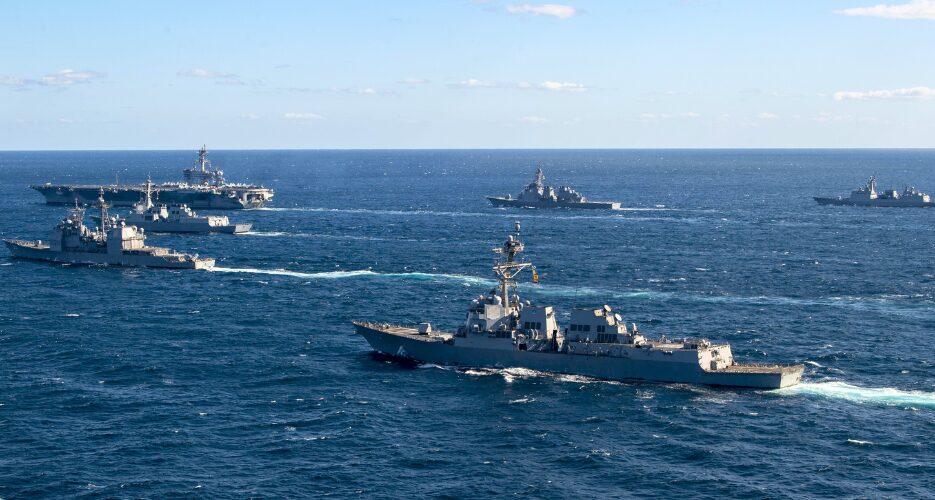Japan and Europe are entering a new phase of strategic alignment. Driven by the growing military assertiveness of China, the unpredictability of Russia, and the nuclear brinkmanship of North Korea, Tokyo and European capitals have accelerated defense and security cooperation at a pace not seen before. This shift marks a broadening of Japan’s international partnerships and a recognition in Europe that the Indo-Pacific is no longer a distant theater but a frontline for the stability of the global order.
Why Japan and Europe Need Each Other
For Japan, geography has always dictated its security priorities. Sitting close to China, Russia, and North Korea, Tokyo has long relied on its alliance with the United States to balance regional threats. Yet uncertainty in U.S. foreign policy, marked by fluctuating commitments and shifting priorities, has made Japanese leaders wary of putting all their security eggs in one basket. Broadening partnerships with Europe provides Tokyo with both reassurance and leverage: reassurance that it is not facing regional challenges alone, and leverage in discussions with Washington, which values allies who carry their own weight and build multilateral networks.
For Europe, the logic is just as strong. The war in Ukraine has underscored how fragile continental peace can be, while Chinese naval maneuvers in the South China Sea and around Taiwan directly threaten trade routes vital to European economies. European leaders increasingly acknowledge that what happens in Asia does not stay in Asia. Japan, with its technological sophistication, stable democracy, and strategic geography, is an ideal partner for projecting European influence into the Indo-Pacific.
From Symbolism to Substance
Not long ago, Japan–Europe security dialogue was largely symbolic. Summits were held, communiqués issued, and declarations made about “shared values.” Today, those discussions are turning into concrete projects. Joint naval patrols involving Japanese, British, and French ships have become routine. Defense technology cooperation, particularly in fields like radar systems, unmanned platforms, and next-generation fighter jets, is intensifying. Cybersecurity has emerged as another urgent area: European and Japanese agencies are coordinating responses to state-backed cyberattacks that target infrastructure, businesses, and even democratic institutions.
Perhaps most significantly, Japan has deepened its ties with NATO. While Japan is not a NATO member, it has joined NATO-led working groups and has participated in joint exercises. NATO itself has acknowledged the Indo-Pacific as a region of concern, and Japan’s involvement provides the alliance with eyes, ears, and capabilities in Asia. On the European Union side, Tokyo and Brussels have expanded defense supply chain discussions, recognizing that semiconductors, critical minerals, and advanced materials are not just economic goods but strategic assets.
The U.S. Factor
At the center of this evolving relationship is a shared uncertainty: the future of U.S. foreign policy. Washington remains the cornerstone of both Japan’s and Europe’s defense planning, but both allies have learned the hard way that American priorities can shift dramatically with electoral cycles. While no one in Tokyo or Brussels wants to reduce reliance on the United States, both want to ensure they have backup options and broader networks of cooperation. In this sense, Japan–Europe collaboration is less about replacing the United States and more about hedging risk and reinforcing a global security architecture that does not collapse if Washington looks inward.
Implications for the Indo-Pacific
The Indo-Pacific is becoming the most contested geopolitical space of the 21st century. China’s military buildup, its expansive territorial claims, and its willingness to project power well beyond its borders have set off alarm bells not only in Washington and Tokyo but also in Paris, Berlin, and London. For Europeans, freedom of navigation in the South China Sea and stability around Taiwan are vital, because disruption there would strangle the trade lifelines that connect Asia to Europe. Japan’s partnership offers Europe credibility in the region, while Europe’s engagement reassures Japan that it is not isolated in facing down a more aggressive China.
Joint naval patrols have already carried European vessels into Asian waters, demonstrating both commitment and capability. These missions, while modest compared to U.S. deployments, carry symbolic weight: they tell Beijing, Moscow, and Pyongyang that a broader coalition is paying attention. They also reassure smaller Asian nations that the global community is invested in regional security.
Japan’s Domestic Calculus
For Tokyo, deepening security ties with Europe is part of a broader national strategy to shed the constraints of its postwar defense posture. Under successive administrations, Japan has loosened restrictions on arms exports, increased its defense budget, and expanded the missions of its Self-Defense Forces. Partnerships with Europe fit naturally into this trajectory. Working with European nations allows Japan to acquire cutting-edge technologies, test interoperability, and build political consensus at home for a more assertive defense role.
Japan’s leaders also recognize that cooperation with Europe strengthens their hand in negotiations with China and Russia. Moscow’s activities in the Arctic and Pacific, as well as Beijing’s maneuvers near the Senkaku/Diaoyu Islands, are not problems Tokyo can confront alone. European support—whether diplomatic, economic, or military—broadens Japan’s options.
Europe’s Strategic Awakening
On the European side, the shift is part of a broader strategic awakening. The war in Ukraine has jolted Europe into recognizing the costs of complacency. If Russia can invade a neighbor in Europe, what is to stop China from doing the same in Asia? By engaging with Japan, Europe signals that it is not only responding to threats on its own continent but also taking a stand on principles of sovereignty, freedom of navigation, and the rule of law globally.
For countries like the United Kingdom and France, which maintain global navies, the partnership is also a way to demonstrate relevance and project power. For Germany and other EU members, the partnership strengthens industrial and technological cooperation, tying European industries into Indo-Pacific supply chains that are critical for long-term competitiveness.
Challenges Ahead
Despite the momentum, challenges remain. Coordination across multiple European nations is complex, and differences in threat perception persist. Some European states are more cautious about confronting China directly, worried about economic backlash. In Japan, public opinion is generally supportive of stronger defense ties but remains sensitive to anything that appears too militaristic. Balancing these domestic constraints with the need for credible deterrence will test leaders on both sides.
Conclusion: A Trans-Eurasian Security Network
What is emerging is a trans-Eurasian security network that connects Tokyo with European capitals in ways that would have seemed unlikely just a decade ago. It does not replace the U.S.–Japan alliance or NATO, but it complements them, adding resilience to the web of partnerships that underpin global stability. In a world where threats are multiplying and uncertainty is the norm, Japan and Europe are choosing to close ranks. Their cooperation is not only about responding to crises but about shaping a future where the rules of international conduct are defended, not eroded.
The trajectory is clear: Japan and Europe will continue to deepen their security cooperation. Whether in naval patrols, cyber resilience, defense technology, or supply chain security, the partnership is here to stay. The stakes are high, but so too is the potential for this alignment to become a stabilizing force in an increasingly turbulent world.

